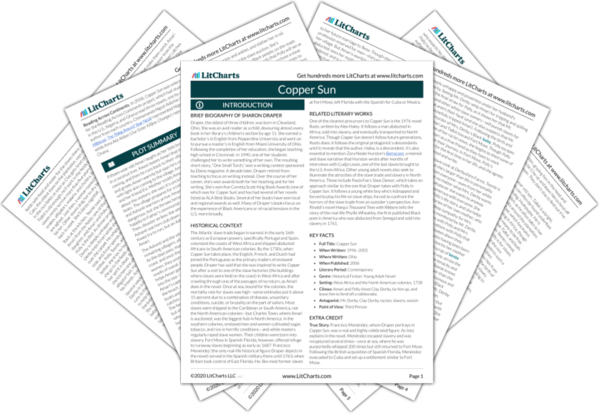Amari is no stranger to slavery, but the kind of slavery she’s familiar with is fundamentally different from the slavery she’s a victim of now. When she feels like the copper sun is bleeding for the prisoners, Amari is using the beauty of the natural world to make sense of her own thoughts and emotions. Because of her grief and sadness in this moment, the sun isn’t the beautiful entity it was when she was happy at home. Now, it reflects her grief and her sense that everything about her and her life is changing.


